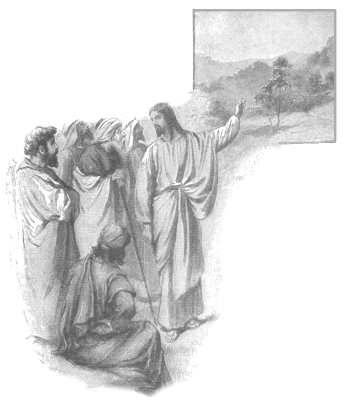google-site-verification: google85f203565cb16b4c.html
Making Better Thought-Movies One Truth At A Time
_________________________________
What's In Each of the Books
of the Bible?

Ever wondered what each book in the Bible is about?
What's In the Books of the Bible makes it easy to know why each book is important... here are some simple descriptions of each book in the Bible:
39 Books of the Old Testament
The 5 Law books of the bible
- Genesis speaks of beginnings. A book about relationships.
- Exodus describes the history of the Israelites leaving Egypt after slavery. God reveals how He is to be worshiped.
-
Leviticus
is a manual of regulations enabling
the king to set up his earthly throne among the people of his
kingdom.
- Numbers tells the story of Israel's journey from Mount Sinai to the plains of Moab on the border of Canaan. Shows the murmuring and rebellion of God's people and their judgment.
- Deuteronomy reminds God's people about His covenant.
The 12 History books of the Old Testament
- Joshua - After years of slavery in Egypt and 40 years in the desert, the Israelites were finally allowed to enter the promised land.
- Judges records the life of Israel in the Promised Land. And how God raised up leaders (judges) to restore the peace to the land.
- Ruth presents the account of faith and piety in the period of the judges showing the fall and restoration of Naomi and her daughter-in-law Ruth.
- 1 Samuel records the political system in Israel headed by a human king, and the tragedy of its first king, Saul.
- 2 Samuel - Under David's rule, GOD causes the nation to prosper, defeat its enemies, and the fulfillment of His promises.
- 1 Kings reveals God's involvement through the prophets. After David, Solomon then how each king in Israel and Judah answered God's call.
- 2 Kings shows the historical account of Judah and Israel. The kings of are judged by their obedience to the covenant with God. Both nations are exiled for disobedience.
- 1 Chronicles addresses the needs of the exiled community to be restored.
- 2 Chronicles continues on Israel's history of seeking restoration of those who had returned from exile.
- Ezra records how God's covenant people were restored from Babylonian exile to the covenant land as a theocratic (kingdom of God) community.
- Nehemiah chronicles the return of this "cupbearer to the king" and the challenges they faced in their restored homeland.
- Esther is the historical account of a Jewish girl who becomes queen of Persia and saves her people from destruction.
The 5 Poetry books of the bible
-
Job relates the account of a
righteous man who suffers through some terrible circumstances.
- Psalms are songs and poems representing centuries of
praises and prayers to God. David being the center stage personality.
- Proverbs are a fantastic collection of sayings and spiritual insights that provide word-pictures and simple guidance for all human behavior and attitudes and thought -life patterns that will yield rewarding results.
-
Ecclesiastes puts the power of wisdom to work in examining the
human experience. His perspective is
limited to what happens "under the sun."
- Song of Solomon is a collection of inspired words uniquely expressing love as exquisite charm and beauty.
The 5 Major Prophet books of the bible
- Isaiah is a great writing prophet who unveils interesting dimensions of God's judgment and salvation.
- Jeremiah had a great prophetic ministry. His personal life and struggles are revealed to us in greater depth and detail.
-
Lamentations are poetic and powerful laments over the
destruction of Jerusalem.
- Ezekiel teaches God's sovereignty and control over all creation and throughout history.
- Daniel writes of events in the life of Daniel during Israel's exile.
The 12 Minor Prophets books of the bible
- Hosea lived during the tragic final days of the northern kingdom and reveals God's faithfulness to unfaithful Israel.
- Joel warns the people of God's judgment, restoration and blessing that comes through repentance.
- Amos prophesies during the reigns of Uzziah and Jeroboam.
- Obadiah warns the people of Edom about impending judgment coming upon them.
- Jonah is the account of Jonah's call to the city of Nineveh, how he resisted, was imprisoned in a great fish, and the outcome.
- Micah predicted the fall of Samaria, and desolation of Judah.
- Nahum tells of the GOD's judgment on Nineveh for her oppression, cruelty, idolatry, and wickedness.
- Habakkuk pens a conversation between himself and GOD concerning injustice and suffering.
- Zephaniah announces to Judah God's approaching judgment.
- Haggai shows the consequences of disobedience. When the people esteem God and his house, they are blessed.
- Zechariah sought to encourage and motivate the completing and rebuilding of the temple.
- Malachi trumps the message that GOD will come not only to judge His people, but also to bless and restore them.

27 Books of the New Testament
The 4 Gospel books of the bible
- Matthew shows how Jesus in his life and ministry fulfilled the Old Testament scriptures.
- Mark shares the good news about the life of Jesus Christ.
- Luke was written to strengthen the faith of all believers and that Gentiles have a place in God's kingdom.
- John zeros in on the fact - "that you may believe that Jesus is the Christ, the Son of God, and that by believing you may have life in His name."
The 1 History book of the New Testament
- Acts provides a second volume to Luke's gospel, by joining what Jesus "began to do and to teach" as told in the gospels with what he continued to do and teach through the apostles' preaching and the establishment of the church.
The 14 Pauline Epistle books of the bible
- Romans lays out GOD's plan of salvation and righteousness for any individual, Jew and non-Jew alike.
- 1 Corinthians exposes the problems of Christian conduct in the church and how to deal with them.
- 2 Corinthians expresses how Paul felt when the Corinthians responded favorably to his letter; to tell about the trouble he went through in Asia, and explains the joys, sufferings and rewards of ministry.
- Galatians lays out the essential New Testament truth that people are justified by faith in Jesus Christ, and that sanctification is not by legalistic works but by the obedience that comes from faith in God's work for them.
- Ephesians - Paul teaches believers to understand GOD's eternal purpose and the grace God has for His church.
- Philippians. Are encouraged to stand firm in the face of persecution and to rejoice regardless of circumstances in a spirit of humility and unity.
- Colossians. Paul writes of Christ as the very image of God, as the creator; the sustainer of all things; the head of the church; the fullness of God in bodily form; and the ultimate reconciler.
- 1 Thessalonians says much about the doctrine of last things.
- 2 Thessalonians writes to encourage persecuted believers. Paul also refers to the Lord's return, and exhorts believers to be steadfast and to work for a living.
-
1 Timothy Paul's instructions to Timothy to care for
the church at Ephesus while he went to Macedonia.
-
2 Timothy Paul admonishes Timothy to guard the gospel,
to persevere in it, to keep preaching, and, if required, to
suffer for the gospel.
- Titus Paul gives Titus his personal authorization and guidance in meeting opposition, instructions about faith and conduct, and warns about false teachers.
- Philemon Paul writes of Philemon's willing acceptance of the runaway slave Onesimus.
- Hebrews reveals Jesus Christ as the mediator of God's grace.
The 7 General Epistles books of the bible
- James a wonderfully practical book on vital information concerning good deeds, faith similar to Jesus's Sermon on the Mount.
- 1 Peter Peter shares various doctrines, of suffering, persecution, glory, hope, and courage, as it relates to the grace of God.
- 2 Peter shows how to deal with persecution from outside the church; how to deal with false teachers and evildoers in the church.
- 1 John exposes false teachers and gives believers assurance of salvation.
- 2 John was written urging discernment in supporting traveling teachers
- 3 John A letter commending Gaius for supporting the teachers and, indirectly, to warn Diotrephes.
- Jude warns about certain immoral men circulating among them who were perverting the grace of God.
The 1 Prophecy book of the bible
- Revelation informs the church of the final showdown between God and Satan. That Satan will increase his persecution of believers, but they must stand fast, even to death. They are sealed against any spiritual harm and will be vindicated when Christ returns, the wicked are forever destroyed, and GOD's people enter an eternity of glory and blessedness.

Making Better Thought-Movies One Truth At A Time
_________________________________
Bible Study Lessons
- Abandonment
- Abilities
- Abortion
- Abuse
- Addiction
- Accusations
- Adultery
- Anger
- Apathy
- Ashamed
- Attitudes
- Backsliding
- Betrayal
- Bitterness
- Born Again
- Chance
- Conscience
- Deceit
- Deception
- Discipline
- Discretion
- Eyes of GOD
- False Witness
- Fear of the Lord
- Fear -Lord #2
- Flattery
- Friendship
- Fool, A
- Foolishness
- Forgiveness
- Giving
- Inheritance
- Injustice
- Instruction
- Judgment
- Kindness
- Knowledge
- Lawlessness
- Lies, Lying
- Misunderstand
- Pleasure
- Pride
- Problems
- Soft Answers
- Speech
- Understanding
- Vengeance
- Wisdom

Parables by Jesus
- Children of Bridechamber
- New Patch, Old Garment
- New Wine, Old Wineskins
- Treasures Old and New
- Spontaneous Growth
- Mustard Seed
- The Leaven
- Hidden Treasure
- Pearl of Great Price
- Dragnet
- The Soils
- Children at Play
- Wise and Foolish Builders
- The Wheat and the Tares
- Empty House
- Uncompleted Tower
- Rash King's Warfare
- Chief Seats
- Pharisee and Publican
- Two Debtors
- Unmerciful Servant
- Barren Fig Tree
- Bond Servant
- Unjust Steward
- Rich Fool
- Rich Man and Beggar
- Good Samaritan
- Laborers and the Hours
- Friend at Midnight
- Importunate Widow
- Lost Sheep
- Lost Coin
- Prodigal Son
- Elder Brother
- Two Sons
- Cruel Vine-Dressers
- Rejected Cornerstone
- Great Feast
- Wedding Robe
- Wise and Foolish Virgins
- Talents
- Good Shepherd